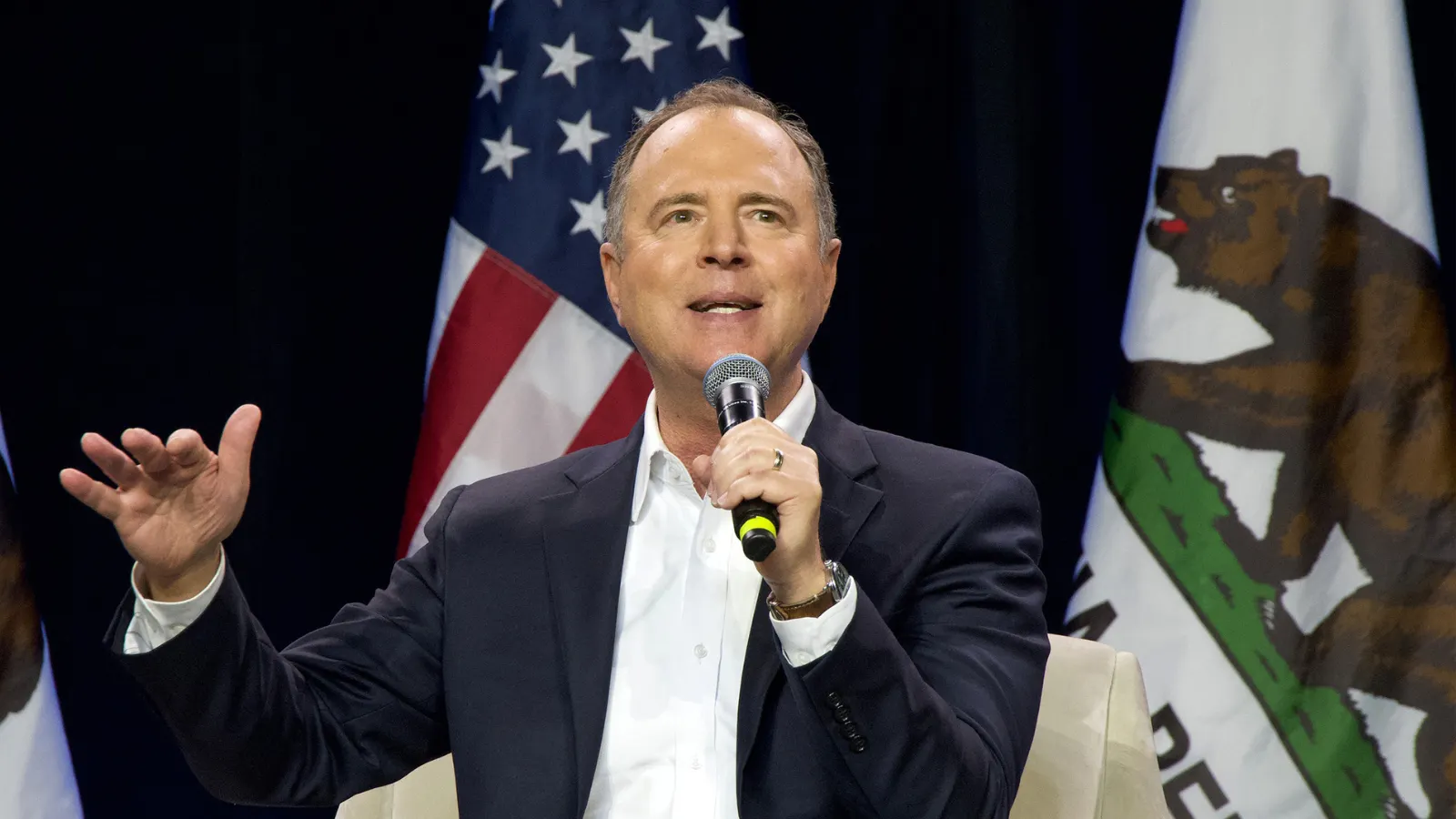In brief
- Senator Adam Schiff introduced the COIN Act, which would bar the president, vice president, and their families from engaging in crypto businesses while in office.
- It would, if passed, punish them with civil fines and up to five years in prison for violating such rules.
- Just last week, however, Schiff voted to pass a crypto bill that failed to ban the president from engaging in stablecoin ventures.
On Monday, Sen. Adam Schiff (D-CA) became the latest Democrat to introduce legislation to ban the president and his family from profiting off crypto while in office—but just last week, Schiff helped pass legislation that would allow the Trumps to do just that.
The Curbing Officials’ Income and Nondisclosure (COIN) Act, introduced in the Senate by Schiff today, would explicitly ban the president, the vice president, and their immediate family members from issuing, sponsoring, or endorsing any cryptocurrency, meme coin, NFT, or stablecoin while in office. It would also obligate these individuals to report the sale of any digital asset worth more than $1,000.
The bill would punish any covered individual for violating these rules—including the president—with a civil fine equal to the amount of profit, and up to five years in prison.
“President Donald Trump’s cryptocurrency dealings have raised significant ethical, legal and constitutional concerns over his use of the office of the presidency to enrich himself and his family,” Schiff said in a statement Monday. “We need far greater scrutiny of the president’s financial dealings, and to stop him and any other politician from profiting off of such schemes.”
Donald Trump and other senior administration officials have made a fortune off of crypto schemes.
Today, I'm introducing the COIN Act to put a stop to this corruption in plain sight. pic.twitter.com/8wieNSCPgC
— Adam Schiff (@SenAdamSchiff) June 23, 2025
Just days ago, however, Schiff joined 17 other Senate Democrats in voting to pass the GENIUS Act, a bill establishing a framework for issuing and trading stablecoins in the United States. And while the legislation does prohibit members of Congress and some executive branch officials from issuing their own stablecoins, it notably exempts the president and vice president from such conflict of interest requirements.
At one point, Democrats threatened to walk away from the bill, which required bipartisan support for passage, over issues including Republicans’ refusal to add any language implicating the president’s numerous crypto ventures. Democrats ultimately acquiesced, and supported the GENIUS Act in large numbers.
Stablecoins represent an increasingly key component of Trump’s vast and growing crypto empire. Earlier this year, World Liberty Financial introduced its own stablecoin, USD1. In May, the Trump family announced a deal which will see a UAE-linked investment firm transfer its $2 billion investment into Binance using USD1 as a settlement layer.
In a video posted Monday, Schiff specifically singled out Trump’s stablecoin venture as a central piece of the “lucrative graft going on in the White House.”
A representative for the senator did not respond when asked by Decrypt why Schiff then voted in favor of the GENIUS Act, given it did not contain language preventing the president from engaging in stablecoin ventures.
On social media, many users responded to Schiff’s announcement with disdain or disbelief, given that context.
“I can’t get over how cynical this is,” Nitish Pahwa, a writer at Slate, posted on Bluesky. “Dude just voted for a bill that was pushed by the crypto lobby and left out any protections against Trump's corruption. Now he's claiming to address the issue with a bill that will never pass?”
Additional Bluesky commenters took potshots at Schiff in the replies to his post, slinging the senator with attacks like "retire bitch" and calling him a "collaborator."
Nine Senate Democrats joined Schiff in cosponsoring the COIN Act Monday. Of them, seven voted to pass the GENIUS Act last week.
Since Trump’s return to office, several Democrats in both chambers of Congress have introduced legislation that would obligate the president to divest from his numerous crypto ventures while in office. Such efforts include the MEME Act, introduced by Sam Liccardo (D-CA) in the House and by Chris Murphy (D-CT) in the Senate, and the Stop TRUMP in Crypto Act, introduced in the House by Rep. Maxine Waters (D-CA). None are likely to pass while Republicans retain control of Congress.
There is also an inquiry into Trump’s crypto ventures pending on the Senate Permanent Subcommittee on Investigations.
While presidential conflict of interest language did not ultimately emerge as a deal-breaker for Senate Democrats on stablecoin legislation, it remains to be seen whether the absence of such language could impact the chances of market structure bills passing in both chambers of Congress. Market structure legislation would establish a legal framework for most of the digital assets industry, and thus implicate the rest of Trump’s crypto dealings beyond stablecoins.
Edited by Andrew Hayward

